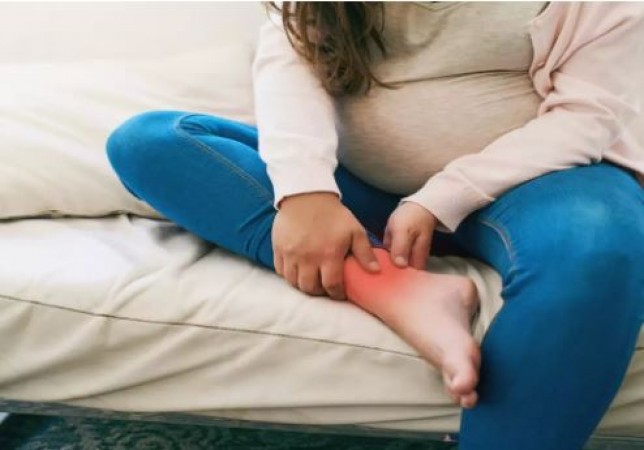
Pregnancy is a beautiful and transformative journey for many women, but it often comes with its fair share of discomforts. One common and bothersome issue that expecting mothers frequently encounter is swelling in the feet. This swelling, also known as edema, is a result of the body's response to the physiological changes that occur during pregnancy. The good news is that there are simple and effective ways to alleviate this discomfort and ensure a more comfortable pregnancy experience. Let's explore in detail some easy methods to reduce feet swelling during pregnancy.
Before we delve into the solutions, it's crucial to understand why swelling occurs during pregnancy. The body undergoes various changes to accommodate the growing baby, including an increase in blood volume and the pressure exerted on blood vessels. These changes can lead to fluid retention, especially in the lower extremities.
One of the foundational principles for overall health during pregnancy is staying adequately hydrated. While it might seem counterintuitive, drinking more water can actually help reduce swelling. Dehydration can lead to the body holding onto fluids, exacerbating swelling. By staying hydrated, you help the body flush out excess sodium, a common culprit for water retention.
An often overlooked but incredibly effective method for reducing swelling is giving your feet a break. Elevating your feet whenever possible allows gravity to assist in draining fluids away from your feet and ankles. This simple act can significantly contribute to reducing swelling and promoting overall comfort.
The choice of footwear plays a significant role in foot comfort during pregnancy.
Investing in shoes with proper arch support and a comfortable sole is essential. High heels should be avoided, as they can strain your feet and contribute to swelling. Look for shoes that provide stability and reduce the impact on your feet.
Compression socks are a valuable addition to your wardrobe during pregnancy. They provide gentle pressure to the ankles and legs, promoting better blood circulation and reducing the likelihood of swelling. Consult with your healthcare provider to find the most suitable compression socks for your needs.
Regular physical activity is a cornerstone of a healthy pregnancy and can contribute to reducing swelling.
Incorporating low-impact exercises into your routine, such as walking or swimming, can have significant benefits. These activities promote circulation and prevent the pooling of fluids in your lower extremities, helping to alleviate swelling.
Prenatal yoga can be particularly beneficial for reducing swelling and promoting overall well-being. Many yoga poses focus on gentle stretches and poses that are suitable for pregnant women. Joining a prenatal yoga class can provide guidance on poses that specifically target swollen feet and ankles.
Dietary choices, particularly regarding salt intake, play a crucial role in managing swelling during pregnancy.
Excessive salt consumption can contribute to fluid retention, exacerbating swelling. Being mindful of your salt intake by avoiding overly salty foods is essential. Opt for fresh, whole foods, and use herbs and spices to add flavor to your meals without relying on excessive salt.
When the discomfort of swollen feet becomes too much to bear, cooling measures can provide immediate relief.
Applying a cold compress to swollen areas for 15-20 minutes can help reduce inflammation and soothe discomfort. The cold constricts blood vessels, limiting the flow of fluids to the affected area and providing a welcome respite from swelling.
While mild swelling is a common and often manageable part of pregnancy, there are instances where it's crucial to seek professional advice.
If you notice sudden or severe swelling, especially if accompanied by other symptoms such as headaches, visual disturbances, or pain, it's vital to consult your healthcare provider promptly. These could be signs of a more serious condition that requires medical attention. In conclusion, while some degree of swelling is normal during pregnancy, adopting these easy methods can significantly contribute to managing and reducing discomfort. Pregnancy is a unique and individual experience, so it's essential to listen to your body and tailor these methods to fit your specific needs. By implementing these strategies, you can enhance your comfort during pregnancy and focus on the joyous moments that come with expecting a new addition to your family.
If you feel sleepy as soon as you pick up books, try these tips, you will never feel lethargic
What time should I wake up in winter?
Power of Yuletide Cheer: Enhancing Mental Health through Christmas Celebrations